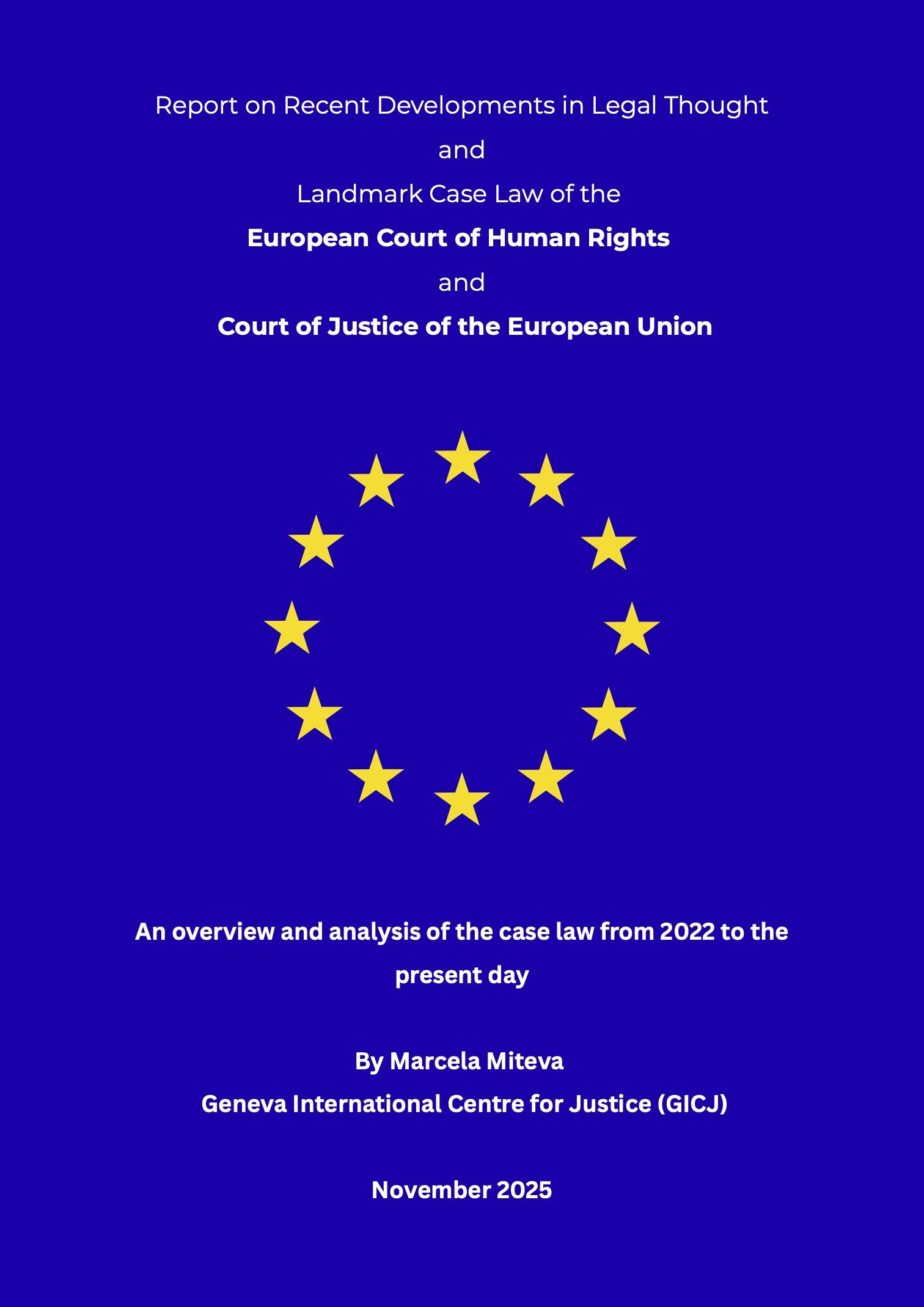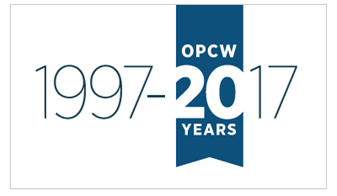
Day of Remembrance for all Victims of Chemical Warfare
On 29 April of every year, the international community observes the Day of Remembrance for all Victims of Chemical Warfare and pays tribute to all persons who have suffered the devastating effect of the most subtle and lethal arms employed in armed conflict: chemical weapons.
The use of chemical weapons as means of warfare has provoked horrific damages and widespread destruction among civilian populations and military units, and has irreparably affected the environment where such arms have been employed.
The first large-scale attack with chlorine gas occurred at Ieper in Belgium on 22 April 1915, and during World War I chemical weapons caused the death of over 90.000 people. Another example of the devastating impact of chemicals is the contentious attack on the Kurdish city of Halabja, Iraq, which killed dozens of people in 1988. While mainstream media continue to accuse the Iraqi government, the U.S report “Lessons Learned: The Iran-Iraq War, Vol. I”, published by the U.S. Marine Corps in 1990, revealed that “the Iranians perpetrated this attack”1 as the Iraqis had no history of using the two agents employed in Halabja.
Recently, despite the continuous campaigns to halt the use of chemical agents as means of warfare and the creation of international binding Conventions, the Independent International Commission of Inquiry on the Syrian Arab Republic recently confirmed that “throughout 2016, Syrian air forces launched air strikes using chlorine bombs in eastern Aleppo city.”2 Such attacks amount to war crimes of “intentionally targeting protected objects” and of “indiscriminate attacks against the civilian population”.
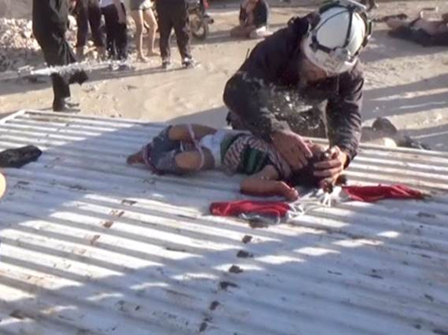
Figure 1. Man assists a child after the suspected chemical attack in Khan Shikhoun, Syria, 4 April 2017
For as long as chemical weapons have been deployed, international efforts to limit their use and to entirely abolish them have been undertaken. In January 1933, The Convention on the Prohibition of the Development, Production, Stockpiling and Use of Chemical Weapons and on Their Destruction, more commonly known as the Chemical Weapons Convention (CWC) opened for signature in Paris and was signed by 130 countries within the first two days. The convention – which entered into force on 29 April 1997 – was deposited with the Secretary-General of the United Nations in New York and is now regulated and enforced by the Organisation for the Prohibition of Chemical Weapons (OPCW). To date, 192 States are parties to the convention, with the exception of Israel – which has signed in 1993 but never ratified – North Korea, South Sudan and Egypt.
The OPCW guides all Member States towards the abolition of the chemical warfare and the strengthening of international security. The convention contains four main goals and provisions:
- “destroying all existing chemical weapons under international verification by the OPCW”;
- “monitoring chemical industry to prevent new weapons from re-emerging”;
- “providing assistance and protection to States Parties against chemical threats”; and
- “fostering international cooperation to strengthen implementation of the Convention and promote the peaceful use of chemistry”3.
The thorough implementation of the CWC has led to the verified destruction of around 95 percent of declared chemical weapon stockpiles – thus making the Convention one of the most successful disarmament treaties.
During the tenth session of the conference of the States Parties of the Convention in 2005, Member States decided to establish a Memorial Day of Remembrance for all Victims of Chemical Warfare which would be observed on 29 April every year4 – the same day of the entrance into force of the Convention in 1997.
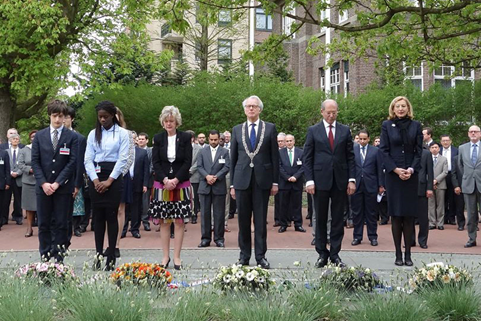
Figure 2. Minute of silence being observed at the annual Day of Remembrance for all Victims of Chemical Warfare held at the Headquarters of the Organisation for the Prohibition of Chemical Weapons (OPCW) in The Hague
On this day, the international community pays tribute to all victims of chemical warfare and re-commits to the principles outlined in the Chemical Weapons Convention: the ultimate goal is the complete elimination of all chemical arms and the protection of all persons from the destructive powers of such barbarous armaments.
On 29th April 2017, GICJ wishes to call on all countries to ratify and comply with the CWC. States Parties should respect their own commitments and effectively dismantle their chemical stockpiles. Events such as those occurring in Syria in this very moment remind us that the threat of chemical weapons has not been entirely removed. On the contrary, the continuous developments in the field of chemistry and science, and the proliferation of threats posed by both states and non-state actors urge us to reiterate and reinforce the relevance of the Chemical Weapons Convention.
The act of remembrance should re-commit us all to never again allow any person to fall victim to the devastating effect of chemical weapons and to continue working to ensure reparation and accountability for all victims.
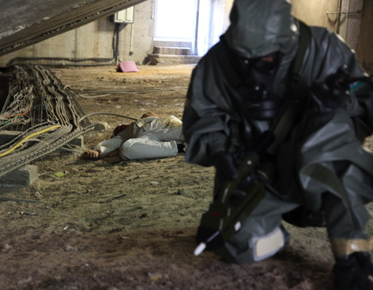
Figure 3. OPCW in the field
1. Lessons Learned: The Iran-Iraq War, Vol. I, written by Dr. Stephen C. Pelletiere and LTC Douglas V. Johnson II of the Strategic Studies Institute of the U.S. Army War College, available at http://www.globalsecurity.org/military/library/policy/usmc/fmfrp/3-203/fmfrp3-203.pdf
2. Report of the Independent International Commission of Inquiry on the Syrian Arab Republic, 34th session Human Rights Council, 2 February 2017, available at https://documents-dds-ny.un.org/doc/UNDOC/GEN/G17/026/63/PDF/G1702663.pdf?OpenElement
3. OPCW Mission Statement, available at https://www.opcw.org/about-opcw/mission/
4. Report of the Tenth Session of the Conference of the States Parties 7-11 November 2005 (par 23.3 of C-10/5), available at, http://www.un.org/en/events/chemwarfareday/pdf/cop10.pdf
Day of Remembrance articles by GICJ:
| Land Day in Palestine | Reflection on the Genocide in Rwanda | Mine Awareness & Assistance in Mine Action | Victims of the Crime of Genocide | International Women's Day | Human Rights Day - 2016 |








